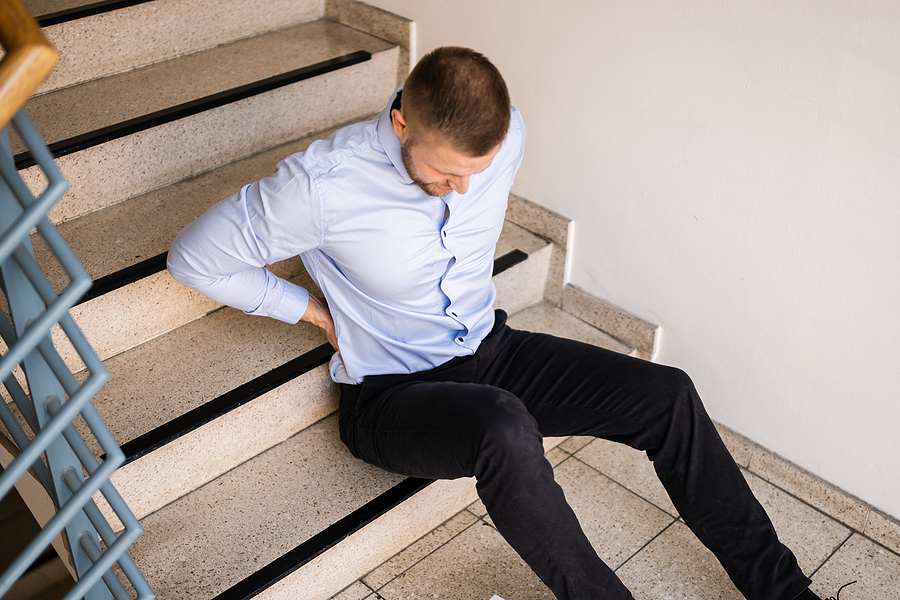Usually, when a personal injury attorney hears the term, “premises liability”, the first thing that will come to mind is slip and fall accidents, as they are among the most common personal injury cases in the United States. Such lawsuits fall under an area of tort law called premises liability, which are generally based on whether or not the proprietor allowed a foreseeable and dangerous condition to continue or failed to use reasonable care to discover a dangerous condition without correcting or blocking off the hazard.
If you are a recent slip and fall accident victim, be sure to consult with an experienced premises liability attorney as soon as possible. In the meantime, continue reading to learn more about slip and fall accident claims, including how to get started on yours as soon as possible.

Slip and Fall Premises Liability Accident Claims
A slip, trip, or fall injury is pretty self-explanatory. It occurs when a person slips or trips on a hazard and loses balance and falls, usually to the ground, subsequently suffering injury. If this type of accident occurs in a public place, a place of business, or another person’s property, there can be legal repercussions for the premise owner and their insurance carrier. The accident victim can legally pursue compensation for their injuries, and may be rewarded compensation if the opposing party(ies) is/are found 50% or more at fault.
If a person is injured, and wishes to pursue compensation for their damages, they must be able to prove fault. Many aspects of a slip and fall case are examined in order to justify who is responsible for such an accident. A jury looks at the premise owner, managers or other potentially at-fault parties and evaluates whether or not they acted carefully in order to prevent any slips, trips, or falls.
Other areas are considered as well in order to determine who is responsible for the accident. Things like poor lighting, torn carpets, uneven flooring, crumbling sidewalks, puddles, and more are all common hazards that cause slip and fall injuries. Weather conditions like rain, ice, and snow are also common culprits for slip, trip, and fall accidents.
Property Owners Have a Legal Duty of Care to Maintain a Safe and Hazard-Free Environment
If a person slips in a supermarket because there is water on the floor, and there is no “WET FLOOR” sign, they could be entitled to compensation for their injuries because the store was responsible for the wet spot and negligent about cleaning it up in a timely manner to prevent harming customers. Property owners can also be negligent by failing to conduct inspections to find dangerous conditions on their property.
Are you a recent slip, trip, or fall accident victim who is looking for a qualified personal injury lawyer? Contact the Law Office of Craven, Hoover, and Blazek P.C. at 317-881-2700 and schedule a free consultation with a seasoned slip and fall attorney in Indianapolis, Indiana. There is no need to travel, as our lawyers are happy to conduct meetings via phone or internet. We represent injured persons throughout the State of Indiana.
You Might Also Like:
What is Premise Liability?
Common Slip and Fall Code Violations
Is the Landlord Responsible for an Apartment Slip and Fall Accident?

